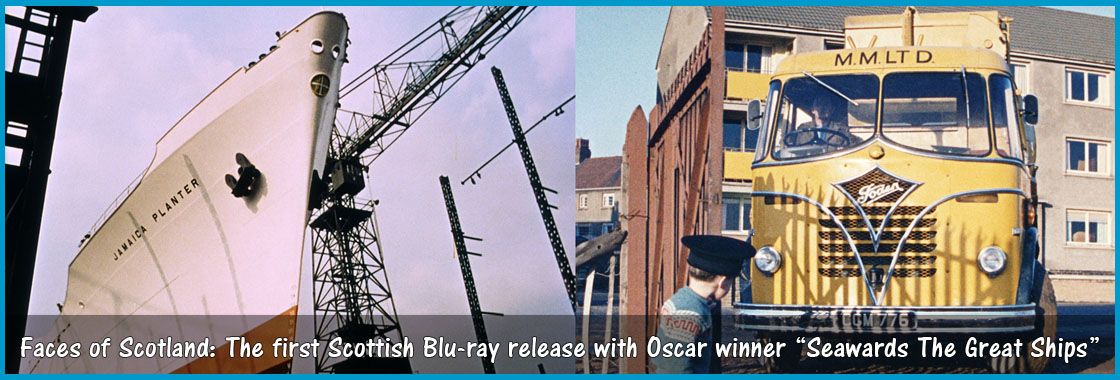Seawards The Great Ships - Faces of Scotland
Seawards the Great Ships (1960) was the first Scottish made film to win an Oscar, for best Live Action Short Film of 1961.
And more Oscars were to be awarded to Scottish films. The Dollar Bottom (1981), starring Rikki Fulton and Robert Urquhart, is a light-hearted tale about an enterprising Edinburgh boarding school boy who sets up an insurance scheme for fellow pupils in 1953 against getting caned, which quickly earns him a small fortune.
In 1995, Peter Capaldi directed The Amazing World of Franz Kafka, featuring Richard E Grant as the author trying to write The Metamorphosis which begins: "As Gregor Smaza awoke one morning from uneasy dreams he found himself in bed transformed into a gigantic insect." Ken Stott and Phyllis Logan also appear as neighbours interrupting Kafka's thoughts.
Seawards the Great Ships paid tribute to the internationally recognised achievements of Clyde shipbuilding. It was released at the beginning of a decade that was to see the River Clyde's long established predominance in world shipping slip into financial decline and human disillusionment - a decade that was to end with government rescue packages and the emotive years of the UCS 'work-in' - a workers' occupation of the yards in the fight to prevent their closure.
This glorious swansong of shipbuilding on the Clyde could be said to epitomise documentary film craft in Scotland. The treatment was written by John Grierson, Scots pioneer of the documentary film, produced by Glasgow's Templar Films, and directed by young American Hilary Harris. It took two years to make, filming every launch from the 23 yards then on the Clyde and involving every cameraman in Glasgow at the time. The story of the production of the film and of its funding chronicles a fascinating period in the development of an indigenous film production industry in Scotland.
Seawards the Great Ships was premiered in Glasgow on 1st May 1960, distributed commercially with Tunes of Glory (1960) and overseas through the British Council. The commentary was dubbed into twelve languages. The original delivery of the narrative was in the native Scottish cadences of actor Bryden Murdoch. Previewed by the Central Office of Information, this delivery was deemed unsuitable for audiences outside Scotland and, unbeknownst to the production company, the COI had the commentary re-dubbed by a BBC London announcer, [Kenneth Kendall] in tones supposedly easier on non-Scots ears. It is possibly this version that was submitted to the Oscar jury.
The story of Seawards the Great Ships incorporates the history of the Clyde as the world's shipyard, of a developing Scottish film culture and the birth of a fledgling industry. One of the stipulations placed on funding by the Clyde Shipbuilders Association was that it should be a tribute to Clyde shipbuilding as a whole, and not single out any one yard. That it still has a resonance today is a tribute to the craft of the filmmaker and to Scots' appetite for their own history.
Now you can enjoy Seawards the Great Ships on Panamint's first, and Scotland's first, Blu-ray, along with 8 more classic documentaries - 198 minutes of great Scottish film making.
Russell Cowe, Panamint Cinema
